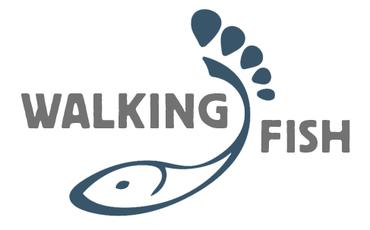Our initiative borrows the concept of a triple bottom line from The Conservation Fund’s Resourceful Communities. The idea is simple: long-term solutions recognize the interconnectedness of ecological, economic, and socio-cultural systems.
Our Triple Bottom Line:
1 To increase the viability of traditional coastal communities by fostering economic opportunities that support natural resource-based livelihoods.
2 To cultivate healthy community ties within and between North Carolina’s rural and urban sectors.
3 To encourage an ethic of ecological stewardship that results in creative, community-based approaches to conservation.
Walking Fish Cooperative, CSF
About Walking Fish Cooperative, CSF
Founded in 2009, we operate a community supported fishery in North Carolina. Based on the community-supported agriculture (CSA) model, a community supported fishery (CSF) is a program that connects local fishermen to a local market. CSF members pre-pay for a "season" of fresh, locally caught seafood, and in return fishermen provide a weekly share of premium fish or shellfish. CSFs seek to connect communities with their food system, encourage low-impact fishing practices, and build relationships between fishermen and community members.

Seafood Offered
Black drum, Bluefish, Cobia, Flounder, Grouper, Hard clams, Mackerel, Oysters, Pompano, Sheepshead, Shrimp, Snapper, Speckled trout, Triggerfish, Tuna, Wahoo, Blue crabs0
Locations
10
Number of Fishermen Sourced From
16
Years in Business

What are the Local Catch core values?
The value statements outlined below aim to create a higher level of accountability and trust, both internally within the network and externally to the public, in order to advance the movement of Community Supported Fisheries (CSF) and like-minded community-based seafood operations.
- Community-Based Fisheries
- Fair Access
- Fair Price
- Eating with the Ecosystem
- Traceable and Simple Supply Chains
- Catch and Handle with Honor
- Community and Ecosystem Based Fisheries Management
- Honoring the Ocean
- Creativity and Collaboration
How does Walking Fish Cooperative, CSF implement these values?










